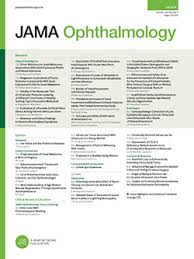 A lab at the University of Malaya has lost two papers and will have to correct five more — just from one publisher — over poor lab practices.
A lab at the University of Malaya has lost two papers and will have to correct five more — just from one publisher — over poor lab practices.
One of the retracted papers paper tested the effects of a plant on liver damage; its notice says the paper contains overlap with another paper from the same lab that tested a different plant for the same effect — but to save time and cut costs, the authors tested both plants in animals at the same time, and collected their tissues using one kit and protocol.
The publisher (Hindawi) decided to take a second look at the work coming out of the lab of Mahmood Ameen Abdulla after people raised questions about some of his previous work, including a Scientific Reports paper that was corrected for mistaken duplications, according to Matt Hodgkinson, the head of research integrity at Hindawi. After Hindawi spotted problems, it contacted the institution, which investigated.
According to Hodgkinson, the UM investigation concluded the problems were due to errors, not deliberate misconduct. Hindawi plans to correct five more papers from Abdulla’s lab, after consulting with Hindawi’s board members following UM’s investigation:

 Less than two weeks ago, PLOS ONE published a paper about the parents of teenagers who appeared to immediately start questioning their gender identity around the time of puberty. Then the critiques flooded in.
Less than two weeks ago, PLOS ONE published a paper about the parents of teenagers who appeared to immediately start questioning their gender identity around the time of puberty. Then the critiques flooded in. Late last year, news stories trumpeted the findings: Older women who received surgery to fix their cataracts were less likely to die over the course of a study period.
Late last year, news stories trumpeted the findings: Older women who received surgery to fix their cataracts were less likely to die over the course of a study period.  A 2017 paper, when originally published, had a fairly clear message: People who got the flu vaccine every year were no less protected than someone who had skipped last year’s dose. But now that it’s been retracted, the picture is somewhat less clear.
A 2017 paper, when originally published, had a fairly clear message: People who got the flu vaccine every year were no less protected than someone who had skipped last year’s dose. But now that it’s been retracted, the picture is somewhat less clear.
 Last year, an academic society recommended that journals retract nine papers by a researcher in Japan who collaborated with a notorious fraudster. Only two have been retracted.
Last year, an academic society recommended that journals retract nine papers by a researcher in Japan who collaborated with a notorious fraudster. Only two have been retracted.
 When you think a retraction notice doesn’t tell the whole story, what should you do?
When you think a retraction notice doesn’t tell the whole story, what should you do?